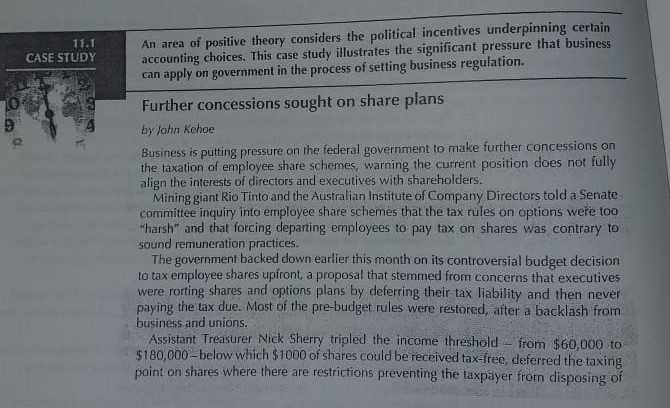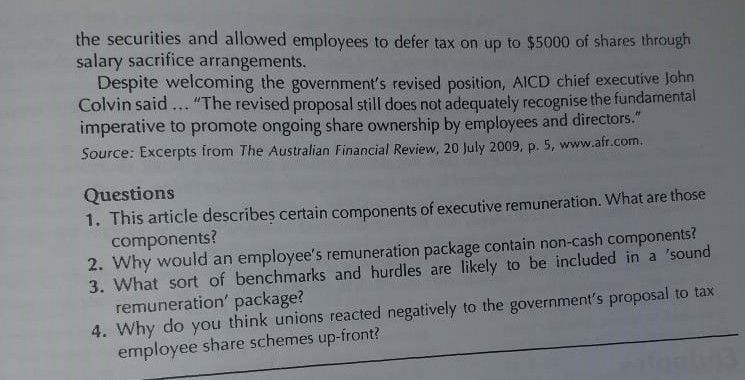

11.1 CASE STUDY An area of positive theory considers the political incentives underpinning certain accounting choices. This case study illustrates the significant pressure that business can apply on government in the process of setting business regulation. Further concessions sought on share plans by John Kehoe Business is putting pressure on the federal government to make further concessions on the taxation of employee share schemes, warning the current position does not fully align the interests of directors and executives with shareholders. Mining giant Rio Tinto and the Australian Institute of Company Directors told a Senate committee inquiry into employee share schemes that the tax rules on options were too "harsh" and that forcing departing employees to pay tax on shares was contrary to sound remuneration practices. The government backed down earlier this month on its controversial budget decision to tax employee shares upfront a proposal that stemmed from concerns that executives were rorting shares and options plans by deferring their tax liability and then never paying the tax due. Most of the pre-budget rules were restored, after a backlash from business and unions. Assistant Treasurer Nick Sherry tripled the income threshold from $60,000 to $180,000-below which $1000 of shares could be received tax-free, deferred the taxing point on shares where there are restrictions preventing the taxpayer from disposing of the securities and allowed employees to defer tax on up to $5000 of shares through salary sacrifice arrangements. Despite welcoming the government's revised position, AICD chief executive John Colvin said ... "The revised proposal still does not adequately recognise the fundamental imperative to promote ongoing share ownership by employees and directors." Source: Excerpts from The Australian Financial Review, 20 July 2009, p. 5, www.afr.com. Questions 1. This article describes certain components of executive remuneration. What are those components? 2. Why would an employee's remuneration package contain non-cash components? 3. What sort of benchmarks and hurdles are likely to be included in a 'sound remuneration' package? 4. Why do you think unions reacted negatively to the government's proposal to tax employee share schemes up-front








